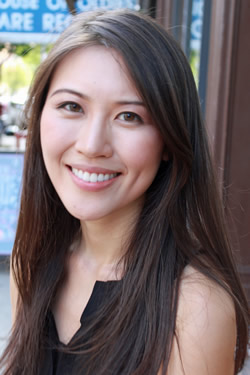|
After three years in the making, my first novel, The Luster of Lost Things, recently came out. However, the dream of writing a novel has been burning for a whole lot longer. Some of my earliest memories are of my mom reading out loud to me before bed, from warm, pure-hearted tales of wonder and magic. That was how I learned English after immigrating to the US—which was a lonely time for me, a child struggling to find a place to belong in a new country and a way to communicate in a language she didn't know. And that was also the beginning of my love for writing. So when I was writing my debut novel, I wanted it to be a grown-up version of the bedtime stories that meant so much to me when I was a kid. I hoped to take people back to their own bedtime stories, their own memories of a time when the world was joyous and brimming with possibility.
In order to do that, I told The Luster of Lost Things from the first-person point of view of a child, a lonely 12-year-old boy named Walter Lavender Jr. Through his eyes, the world is, quite literally, touched by magic. Through his eyes, we can see things that were previously hidden or overlooked. Children don't yet know what they are supposed to be seeing, how they are supposed to be thinking of things; they are seeing and encountering many things for the first time, and so they view the world with a wide-eyed clarity that we lose as we start to develop frameworks, assumptions and heuristics based on our accumulated experiences. Unfiltered, unfettered, children have a way of making unexpected connections and drawing painfully honest conclusions. They approach the world with truly open eyes, ready to see the unexpected.
So, a major advantage of a child narrator is that otherwise mundane scenes can take on a surprising poignancy and a sheen of wonder. But the voice still belongs to a child. Children don't have years of experience to draw upon. There are more limits in the way they are able to describe and interpret things. In creating Walter's voice, I thought back to the way I spoke and thought when I was a kid, the things I knew and the things I was unaware of. My memories of childhood are probably my most vivid, and finding my younger self was a matter of focusing and deploying what I suppose is the writer's equivalent of method acting. I ended up doing two main things to bring a child's voice to life.
First, I kept the language simple and mined that simplicity for beauty. As an adult, I might see a dark red shirt and use the word burgundy to describe it—but when I was twelve, I definitely didn't know that word. I would've compared it to a rotting or ripe cherry, depending on my mood, to capture the depth of the color. The words that Walter uses as he narrates his story are simple and direct, and he puts those words together in a simple and direct way. To convey sophisticated words, emotions and concepts, he uses comparisons that are, again, simple and direct.
Second, I've noticed that a distinctive mark of a child's speech is that sense of breathlessness, a sort of streams-of-consciousness lite, when they relate, say, the goings-on of their day to you. They string together several—and sometimes unrelated—thoughts, abetted by the humble "and." I wanted to capture that as well—a voice that was fluid and scattered with tangents.
But how to manage that voice while keeping the novel from becoming a book for younger readers—especially when my inspiration for plot and tone was those books for younger readers? Theme played an important role. I explored topical social issues, like gentrification, homelessness, immigration and alternative family structures, and raised questions around losing, searching and finding—on being human, on living. I relied on symbolism and imagery to imbue simple or childlike elements with depth of meaning. And finally, while the narrator is a child, he is surrounded by adults who are dealing with adult problems and situations; their stories of loss and longing are the beating heart of the book. Their stories are the anchor to this world as we set sail for the golden days of childhood we lost.
|


